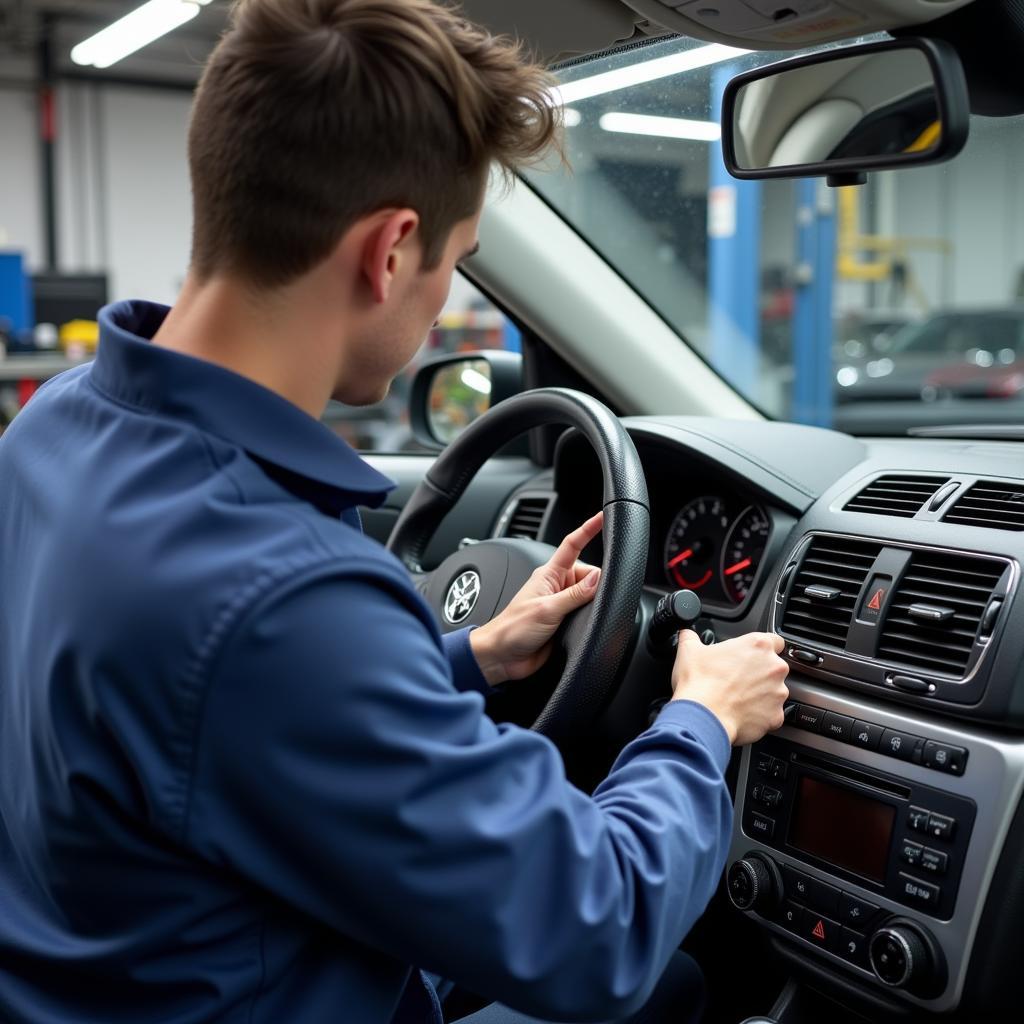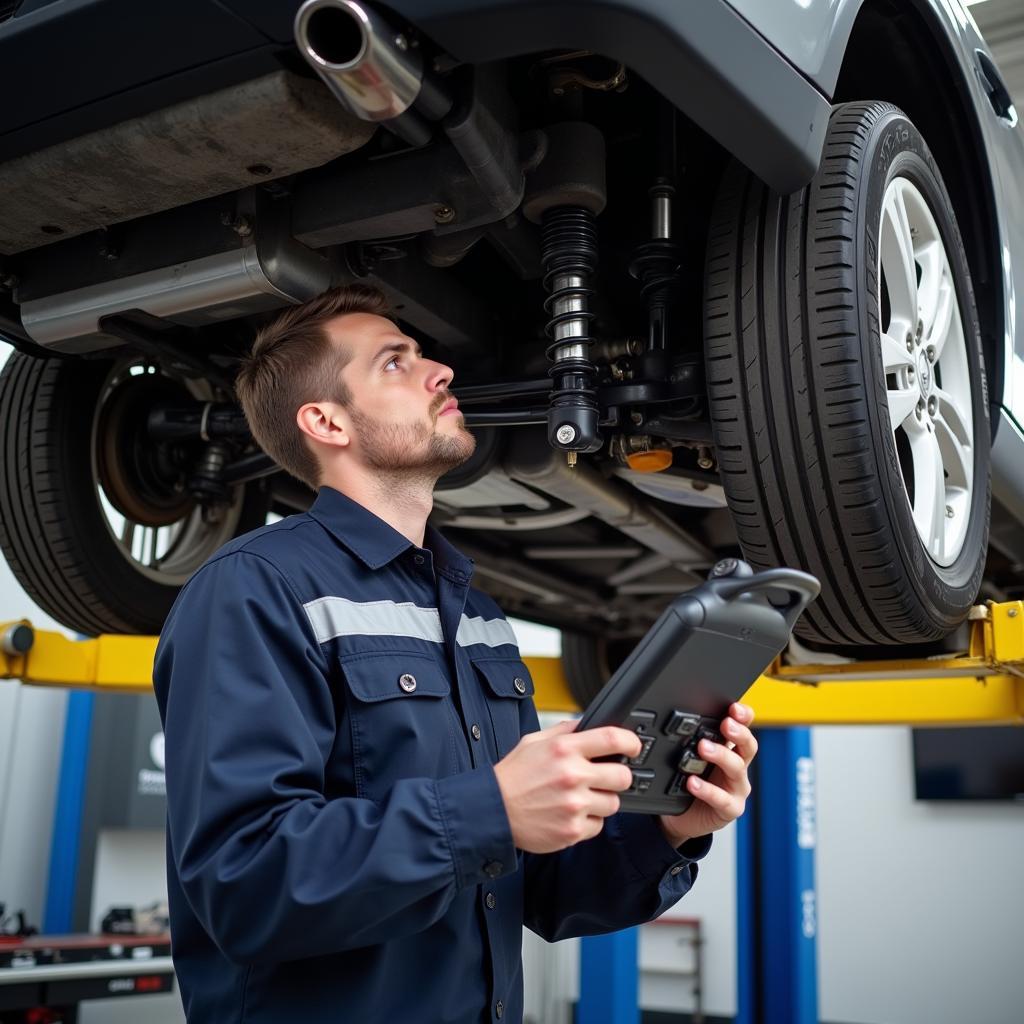What a Full Car Service Includes: A Comprehensive Guide
A full car service is much more than a quick oil change. It’s a comprehensive check-up designed to keep your vehicle running smoothly and safely. Understanding What Full Car Service Includes is crucial for maintaining your car’s health and longevity. This guide provides a detailed breakdown of what to expect during a full car service.
What Does a Full Car Service Entail?
A full car service typically covers a wide range of checks and replacements, going beyond the basics of an interim service. It’s a thorough examination of your vehicle’s vital components, ensuring everything is in top working order. Think of it as a complete physical for your car, identifying potential problems before they become major headaches. what includes in full car service offers a good starting point to understanding this essential maintenance procedure.
Engine Compartment Inspection
The engine compartment is the heart of your vehicle, and a full service includes a thorough inspection of its key components. This includes checking fluid levels (oil, coolant, brake fluid, power steering fluid), examining belts and hoses for wear and tear, and inspecting the battery and charging system. Spark plugs are typically replaced during a full service, and the air filter is checked and replaced if necessary.
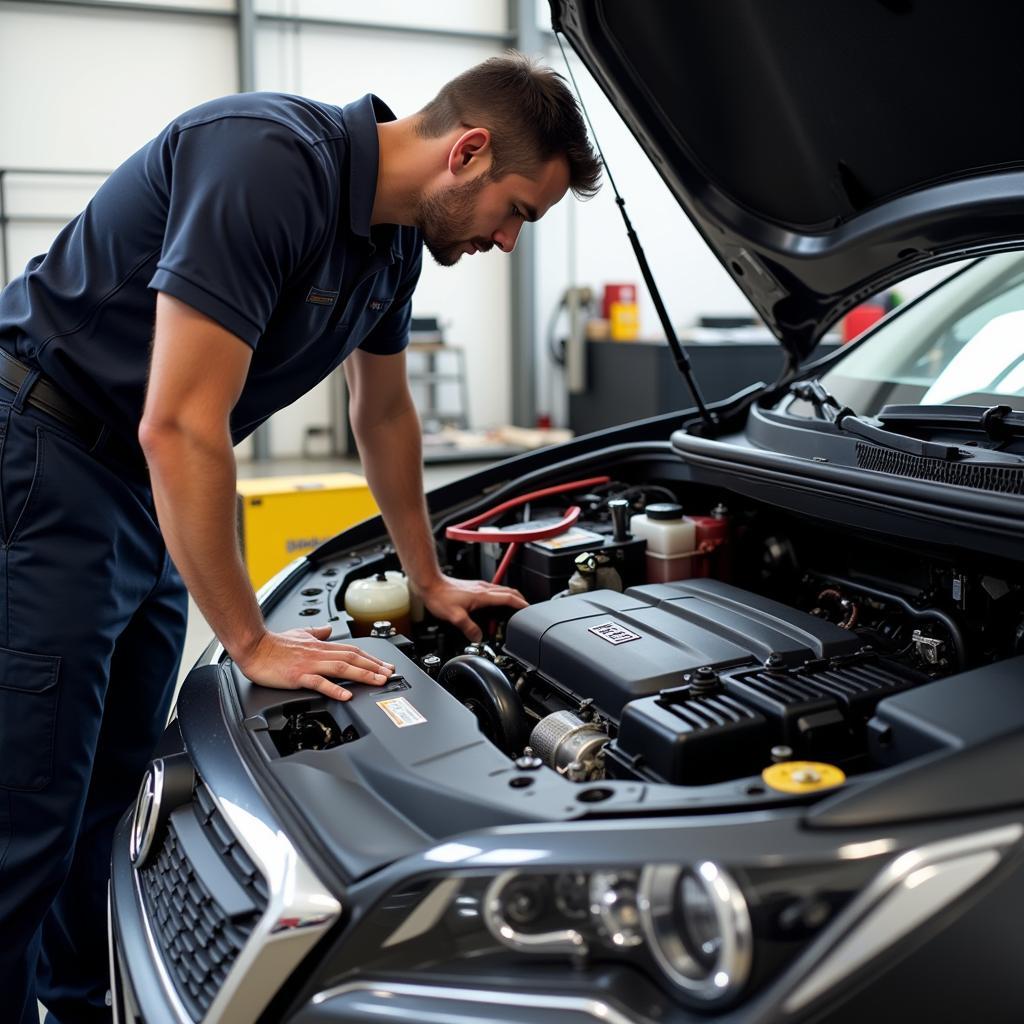 Full Car Service: Engine Compartment Inspection
Full Car Service: Engine Compartment Inspection
Brake System Check
Your brakes are essential for safety, and a full service includes a comprehensive check of the entire braking system. This includes inspecting brake pads and discs for wear, checking brake fluid levels and condition, and examining brake lines and hoses for leaks or damage.
Suspension and Steering Inspection
The suspension and steering systems are crucial for handling and ride comfort. During a full car service, these systems are inspected for wear and tear, including checking shock absorbers, springs, ball joints, and tie rod ends. The steering wheel is also checked for free play and responsiveness.
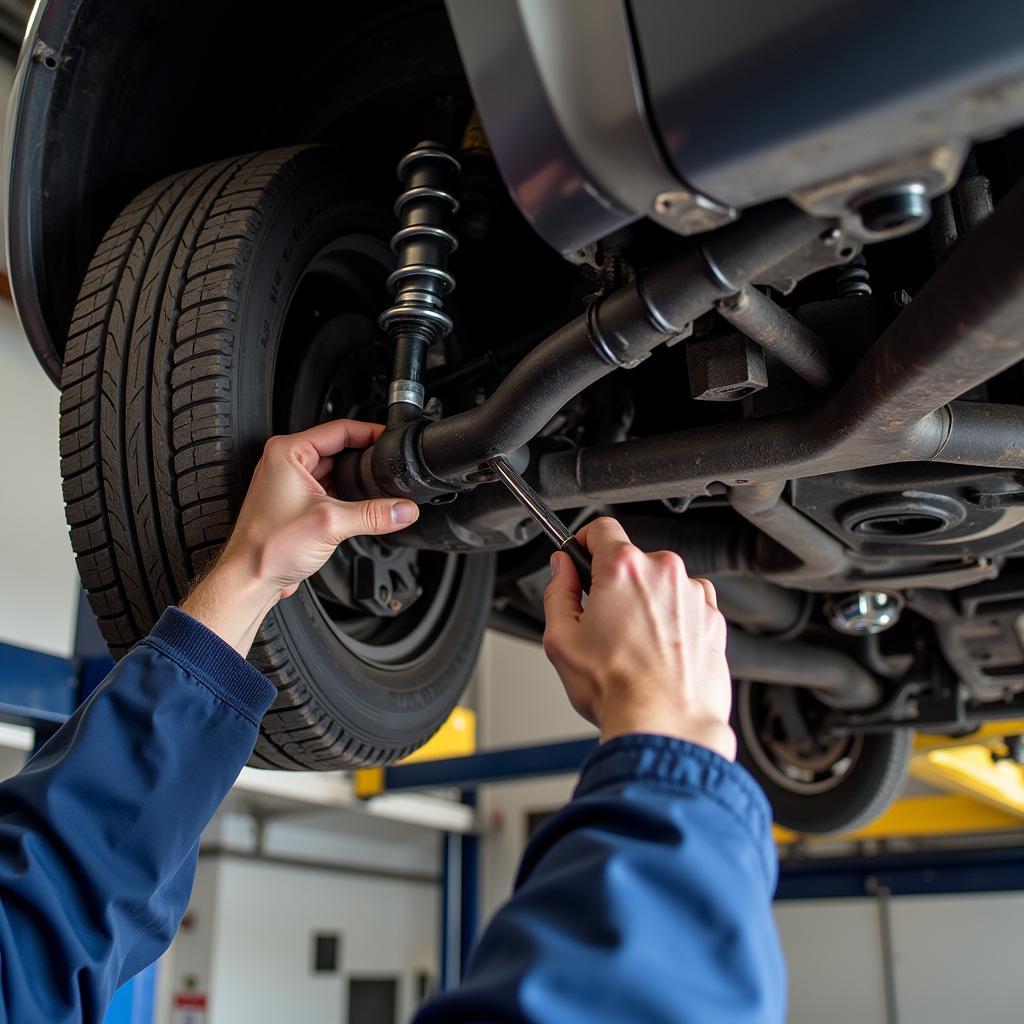 Full Car Service: Suspension and Steering Check
Full Car Service: Suspension and Steering Check
Electrical System Check
Modern vehicles rely heavily on electronics, and a full service includes a check of the electrical system. This includes inspecting the battery, alternator, starter motor, lights, and wipers. Any faulty components are identified and recommended for replacement. A well-functioning electrical system ensures safe and reliable operation of your vehicle.
Exhaust System Inspection
The exhaust system plays a vital role in reducing emissions and ensuring efficient engine performance. A full service includes an inspection of the exhaust system for leaks, rust, and damage. A damaged exhaust system can not only affect performance but also lead to harmful emissions.
What a Full Car Service Includes: Additional Considerations
Beyond the core components mentioned above, a full service might also include checking tire pressure and tread depth, inspecting the air conditioning system, and topping off other fluids as needed. The exact components included in a full car service can vary depending on the make and model of your vehicle, as well as the specific service package offered by the garage. For example, you can learn more about UK pricing at how much is a full service on a car uk.
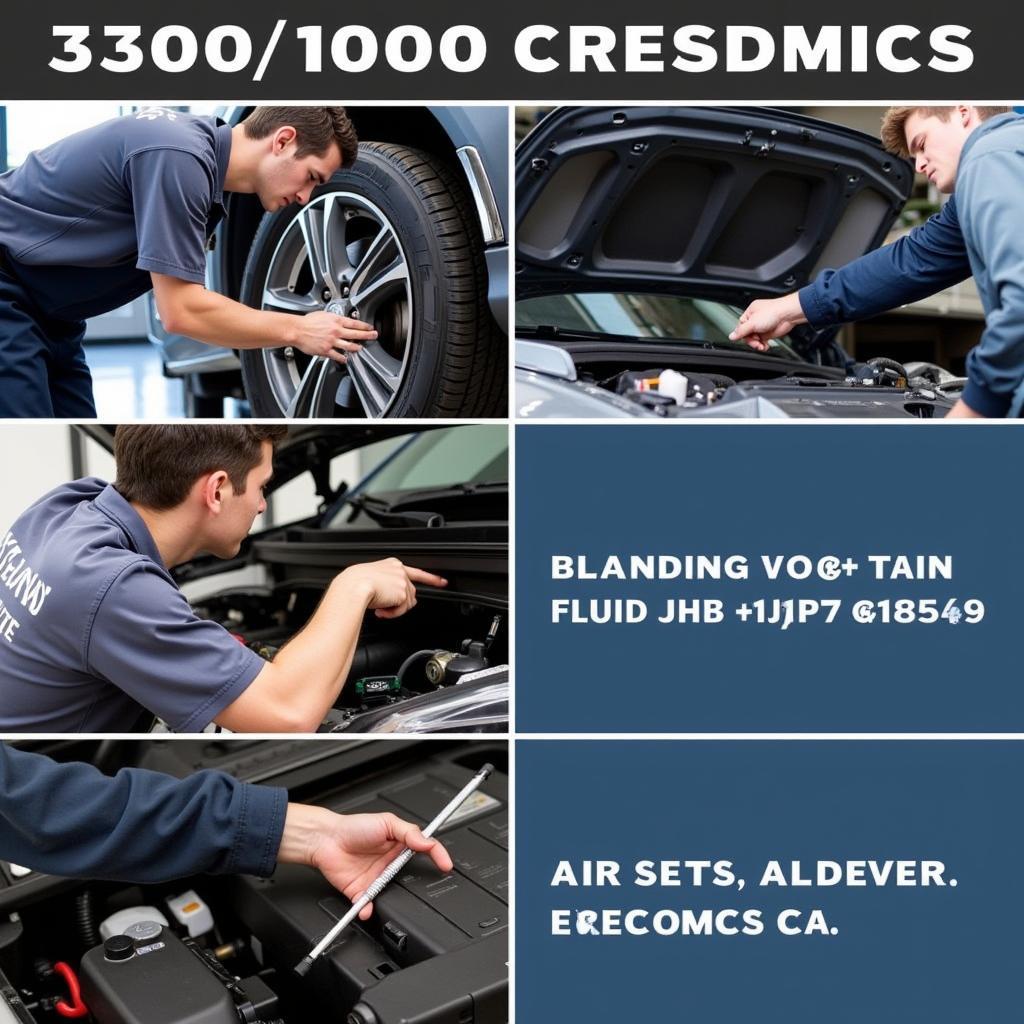 Full Car Service: Additional Checks
Full Car Service: Additional Checks
“Regular full car servicing is not just about fixing problems, it’s about preventing them,” says David Miller, ASE Certified Master Technician. “A comprehensive service can identify potential issues early on, saving you money and hassle in the long run.”
Why is a Full Car Service Important?
Regular full car servicing is crucial for maintaining the health, safety, and longevity of your vehicle. what is included in a service of a car provides more details about the importance of regular car maintenance. By addressing potential problems early, you can avoid costly repairs down the road. A well-maintained car is also more fuel-efficient and performs better overall.
Conclusion
Understanding what a full car service includes empowers you to make informed decisions about your vehicle’s maintenance. It’s an investment that pays off in the long run, ensuring your car remains safe, reliable, and performs at its best. By proactively addressing maintenance needs, you can enjoy peace of mind and avoid unexpected breakdowns.
FAQ
- How often should I get a full car service? Typically, every 12,000 miles or 12 months.
- How long does a full car service take? It usually takes around 3-4 hours.
- What is the difference between a full service and an interim service? A full service is more comprehensive and covers more checks and replacements.
- Can I choose which parts are replaced during a full service? You can discuss your needs with the mechanic, but they will recommend necessary replacements based on their inspection.
- How much does a full car service cost? The cost varies depending on the make and model of your car and the garage.
- Is a full car service worth it? Yes, it’s essential for maintaining your car’s health and preventing costly repairs.
- What should I do after a full car service? Keep an eye on any unusual noises or behavior from your car and report them to your mechanic immediately.
Need help with long-term care services and Medicare? Check out our article on how medicare pays for long-term care services.
For more articles about car service, browse our website what a full car service includes.
Need support? Contact us via WhatsApp: +1(641)206-8880, Email: [email protected] or visit us at 456 Oak Avenue, Miami, FL 33101, USA. Our customer service team is available 24/7.
